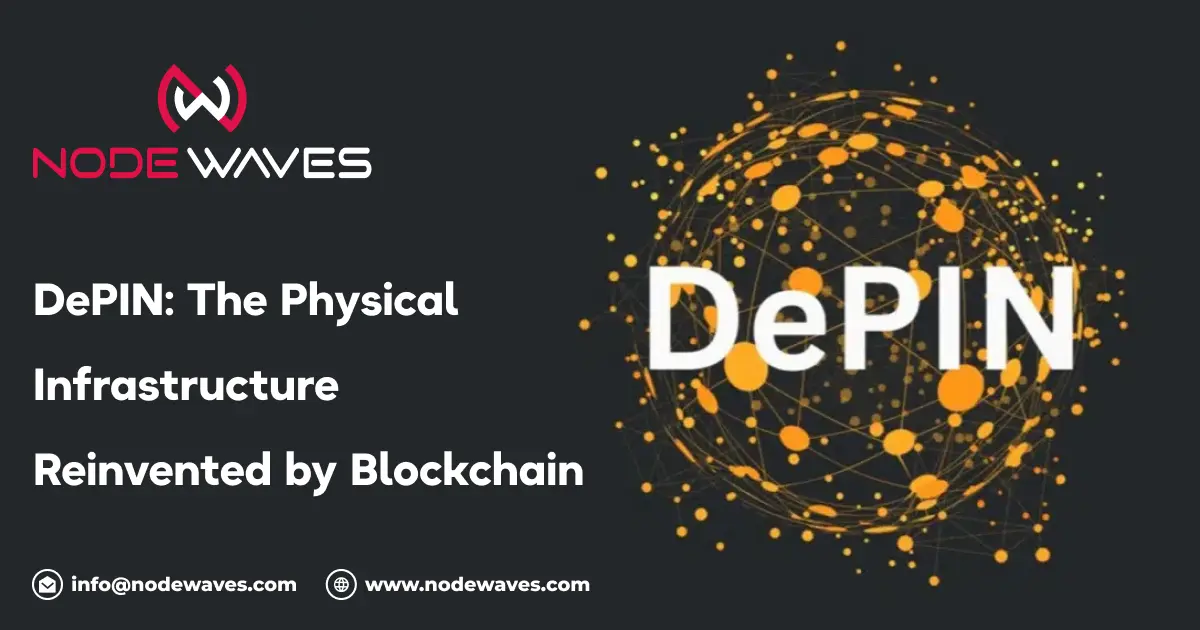Demystifying Proof-of-Stake: How Nodewaves is Pioneering a New Era in Blockchain Technology
Blockchain technology has often been shrouded in complex jargon and technicalities, making it challenging for the average person to grasp its full potential. Among the various consensus mechanisms that underpin blockchain operations, Proof-of-Stake (PoS) stands out for its efficiency and sustainability. Today, we'll break down PoS in simple terms and explore how Nodewaves is leveraging this technology to revolutionize the blockchain landscape.
Understanding Proof-of-Stake in Simple Terms
Imagine a group of friends who decide to play a game, and they need someone to keep score. Instead of everyone trying to do it at the same time, they take turns. To decide who goes first, each friend puts some of their own money on the table. The more money they put down, the higher their chances of being chosen. If the chosen scorekeeper cheats, they lose their money. If they do a good job, they get a reward. This is a simplified version of how Proof-of-Stake works.
In the world of blockchain:
- Participants (like our friends) are called validators.
- They stake their coins (put money on the table) to be selected for validating transactions (keeping score).
- Validators who cheat lose their staked coins, ensuring honesty.
- Honest validators are rewarded for their work, earning more coins.
The Nodewaves Advantage: Pioneering with Proof-of-Stake
Nodewaves has taken this simple yet powerful concept and applied it to create a robust and efficient blockchain ecosystem. Here’s how Nodewaves is pioneering the use of PoS:
1. Efficient Use of Energy
Traditional Proof-of-Work (PoW) systems, like those used by Bitcoin, require massive amounts of energy to solve complex mathematical problems. In contrast, Nodewaves’ PoS system significantly reduces energy consumption by eliminating the need for these intensive computations. This makes it a more sustainable and eco-friendly solution.
2. Enhanced Security
Nodewaves ensures network security by requiring validators to stake their coins. This financial commitment discourages fraudulent behavior. To manipulate the network, a bad actor would need to own a majority of the staked cryptocurrency, which is both difficult and expensive.
3. Financial Rewards
Validators in the Nodewaves network earn rewards for their participation. These rewards come from the network fees and newly minted coins, providing a steady income stream for those who actively contribute to the network's security and stability.
4. Decentralization
Nodewaves' PoS model promotes decentralization by allowing more participants to become validators. This distribution of power across many validators enhances the network's resilience and reduces the risk of centralization, where a few entities control the entire network.
5. Accessibility and Ease of Use
Nodewaves make it easy for anyone to become a validator. By providing user-friendly software for Mac and Windows, Nodewaves lowers the barrier to entry, encouraging wider participation in the blockchain ecosystem.
Nodewaves' Role in Shaping the Future of Blockchain
Nodewaves is not just implementing PoS; it's redefining its potential. By focusing on sustainability, security, and inclusivity, Nodewaves is setting new standards in the blockchain industry. Their approach ensures that blockchain technology is not only efficient and secure but also accessible to a broader audience.
Conclusion
Nodewaves is at the forefront of a new era in blockchain technology, utilizing Proof-of-Stake to create a sustainable, secure, and inclusive network. For those interested in the future of blockchain, Nodewaves represents a compelling opportunity to engage with and benefit from this revolutionary technology. Whether you are a tech enthusiast, an environmental advocate, or an investor, Nodewaves offers a promising glimpse into the future of decentralized networks.






